The juggernaut all set to start rolling
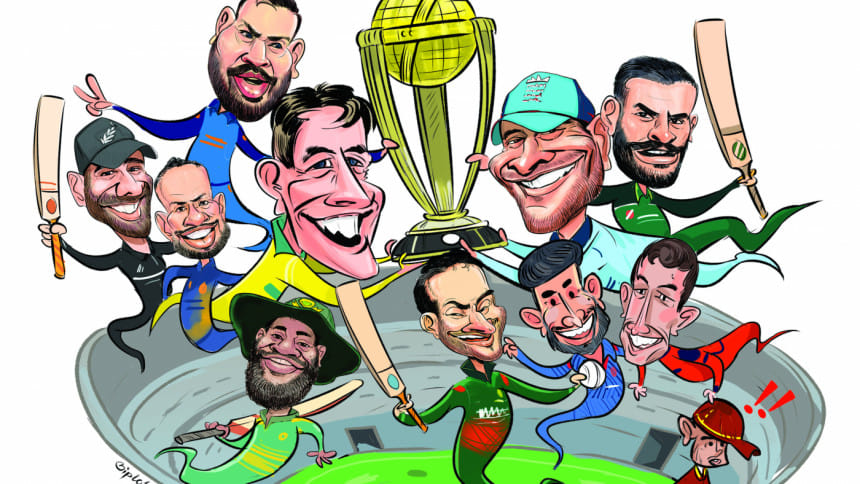
The world has changed a lot since the inaugural edition of the ICC World Cup took place in England way back in 1975 as a 'necessary evil' and at a time when the radio or the affluent people's black and white televisions were the only modes to tune in to the action of cricket's showpiece event.
The advancement of telecommunication has now brought the tournament, like any other sporting event, to one's fingertips. Gentlemen cricketers no longer sport all whites and the introduction of state-of-the-art technologies and rules have made the event more attractive and less controversial.
Amid all these changes, the tournament has not changed a bit as a pinnacle of the game's glorious uncertainties -- from the first sight of Viv Richards the King to the enfant terrible Kapil Dev, the sleepy giant in Inzamam Ul Haq, a rollicking Ricky Ponting, a sublime Aravinda de Silva, a cool Mahendra Singh Dhoni, and last but not the least, a brave-heart Ben Stokes.
Four years ago in 2019, Stokes led England to their first-ever World Cup glory in a most extraordinary fashion. England won the pulsating final against New Zealand at Lord's on boundary count (26/17) after the scores were tied both in 50 overs and in the 'Super Over'.
The defeat was cruel for the Kiwis. But the cricketing world could not have asked for a more fascinating finish to a tournament, that, barring a few exceptions, kept on captivating the audience with exciting package that at times bordered beyond one's wildest dreams.
Four years on, the onus has been on India to keep the World Cup caravan rolling. India is probably the best place for a World Cup, not just because it boasts a cricket-crazy population of over 1.4 billion, but also for the commercial appeal the country carries for the good health of the game.
Ten culturally diverse Indian cities -- Ahmedabad, Bangalore, Chennai, Delhi, Dharamsala, Hyderabad, Kolkata, Lucknow, Mumbai and Pune -- are ready to play host to the 46-day carnival, beginning on October 5 and culminating with a grand final on November 19.
The line-up for the 10-team competition is all set, featuring almost all the familiar names barring the once all-encompassing West Indies, who failed to cross the qualifying hurdle and made way for new Leviathans in the Netherlands.
It is unfortunate that the cricketing world will miss the famous calypso beats on the biggest stage for the first time.
Missing the World Cup has certainly served as a wake-up for call for the Windies cricket authorities, who probably had not done enough to nurture a youth development system that has been so productive for them over the years. Besides, too much focus of some top West Indies players on financially lucrative T20 tournaments over national team duty has also played a big part in West Indies' gradual decline in ODI rankings.
While India will desperately look for a third World Cup, the second on their home soil since the 2011 edition, holders England, who resorted to an enterprising approach after a first-round exit from the 2015 World Cup, will again be in pole position to defend their title.
Record five-time champions Australia might not carry along an invincible aura they possessed in the last decade or so, but the Aussies would certainly look forward to going one better than they did in 2019 – a semifinal defeat against England.
The Aussies are the most successful finalists in World Cup history – winning five out of seven finals they have played so far.
New Zealand will be eying their first Cup glory after two successive final disappointments while South Africa, who have never reached a final, will once again look to shrug off the 'chokers' tag.
Despite all the talent Pakistan have, they have remained underachievers in the World Cup save the 1992 edition when Imran Khan led them to their maiden glory in the most extraordinary fashion.
This World Cup will also bring back the India-Pakistan rivalry to the fore, where Pakistan will desperately try to end a seven-match losing streak at Ahmedabad on October 14.
Sri Lanka, another subcontinental team, have not been a force to be reckoned with since their Cinderella run in the 1996 World Cup.
Bangladesh's World Cup campaign, since their debut in the 1999 edition, has been a story of ebb and wobble apart from a few flashes of brilliance here and there. The closest they came in the title race was in the 2015 World Cup when the Tigers made it to the quarterfinals before being ruthlessly dispatched by India.
Champion all-rounder Sakib Al Hasan made the last World Cup in England his own by scoring over 600 runs and taking 11 wickets -- a feat that no other all-rounder had done at the biggest stage. But he was the lone ranger in a team that lacked consistency from other players.
Shakib will lead Bangladesh this time around. It will most likely be one last saloon for three Bangladesh stalwarts – Shakib, Mushfiqur Rahim and Mahmudullah Riyad – to make their wealth of experience count.
Armed with some exciting pace bowlers, the Tigers are now a far more competitive team than they were ever before. What they still desperately lack is mental discipline, which was evidenced in the just-concluded Asia Cup.
The World Cup has always been rewarding to true entertainment-seekers. A fearless England side are the latest example of entertaining the fans, irrespective of winning or losing. This approach has not only brought them success but more importantly, won them more fans.
The 13th edition of the ever-evolving cricket showpiece will not be an exception in India -- a nation that follows the game passionately and worships its cricketing heroes.
Let the festival begin. Let the galaxy of stars from around the world go out there in the middle and entertain the billions.

 For all latest news, follow The Daily Star's Google News channel.
For all latest news, follow The Daily Star's Google News channel. 


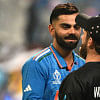
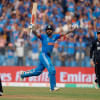
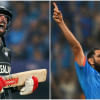
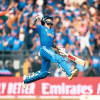


Comments